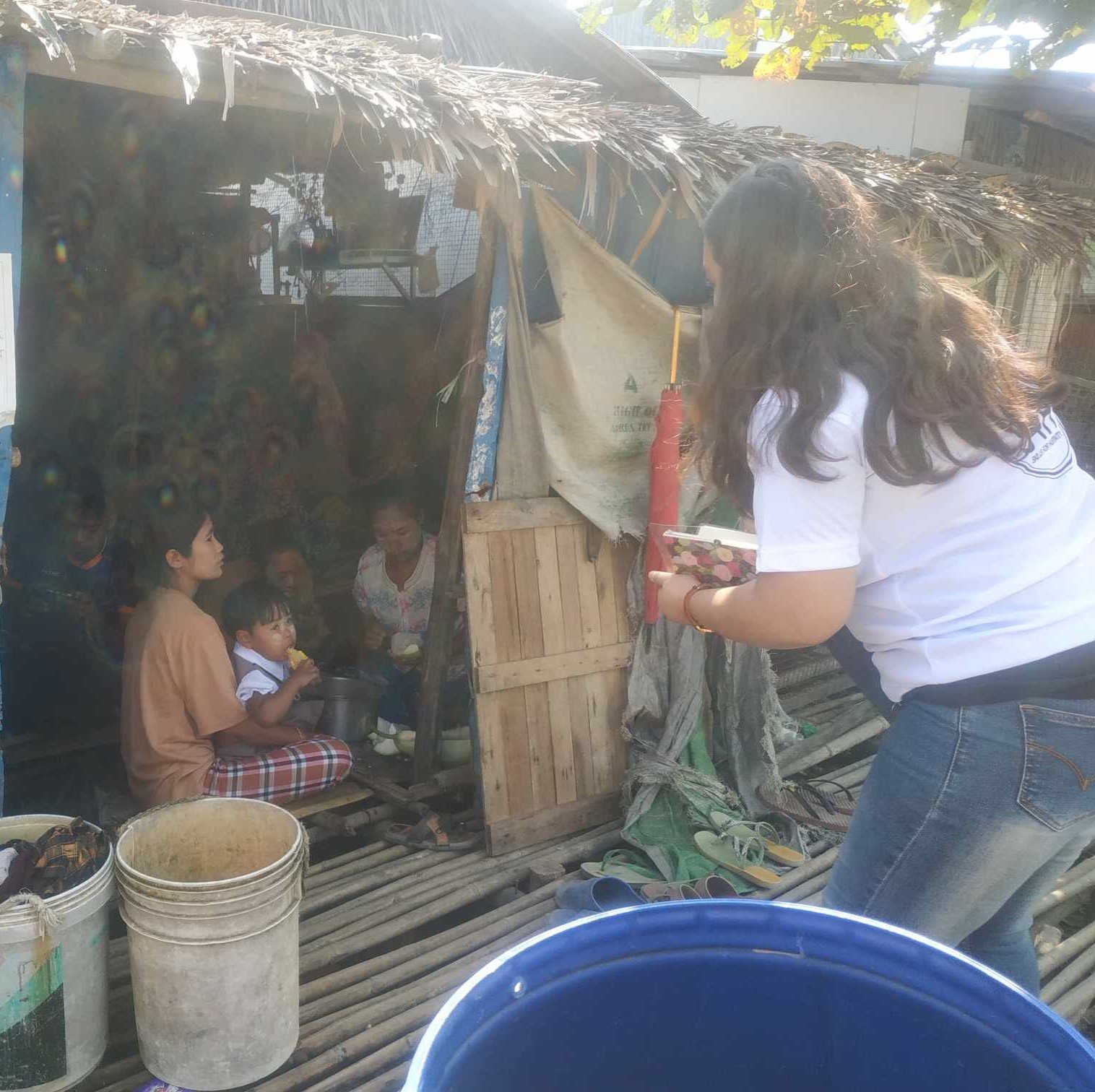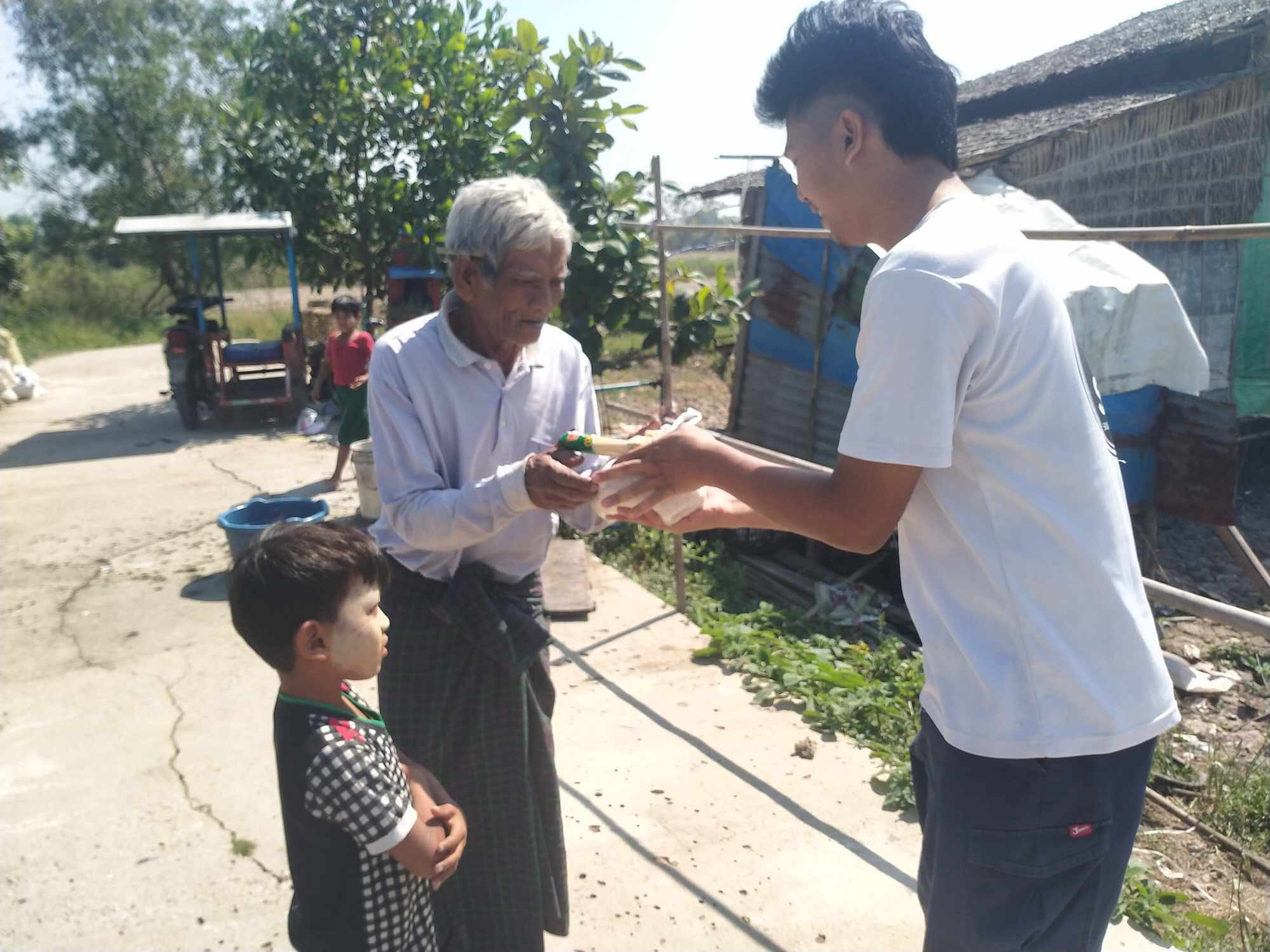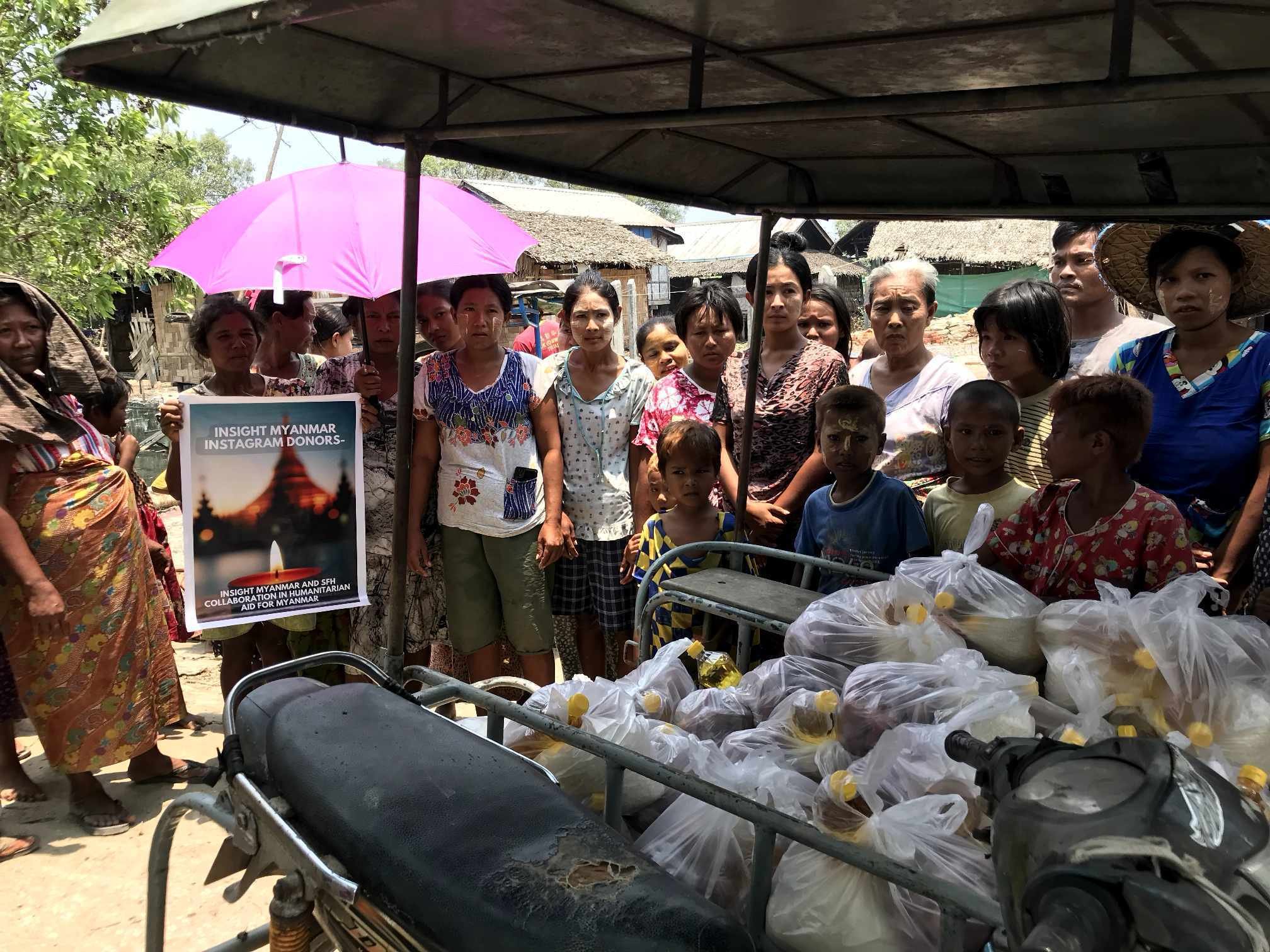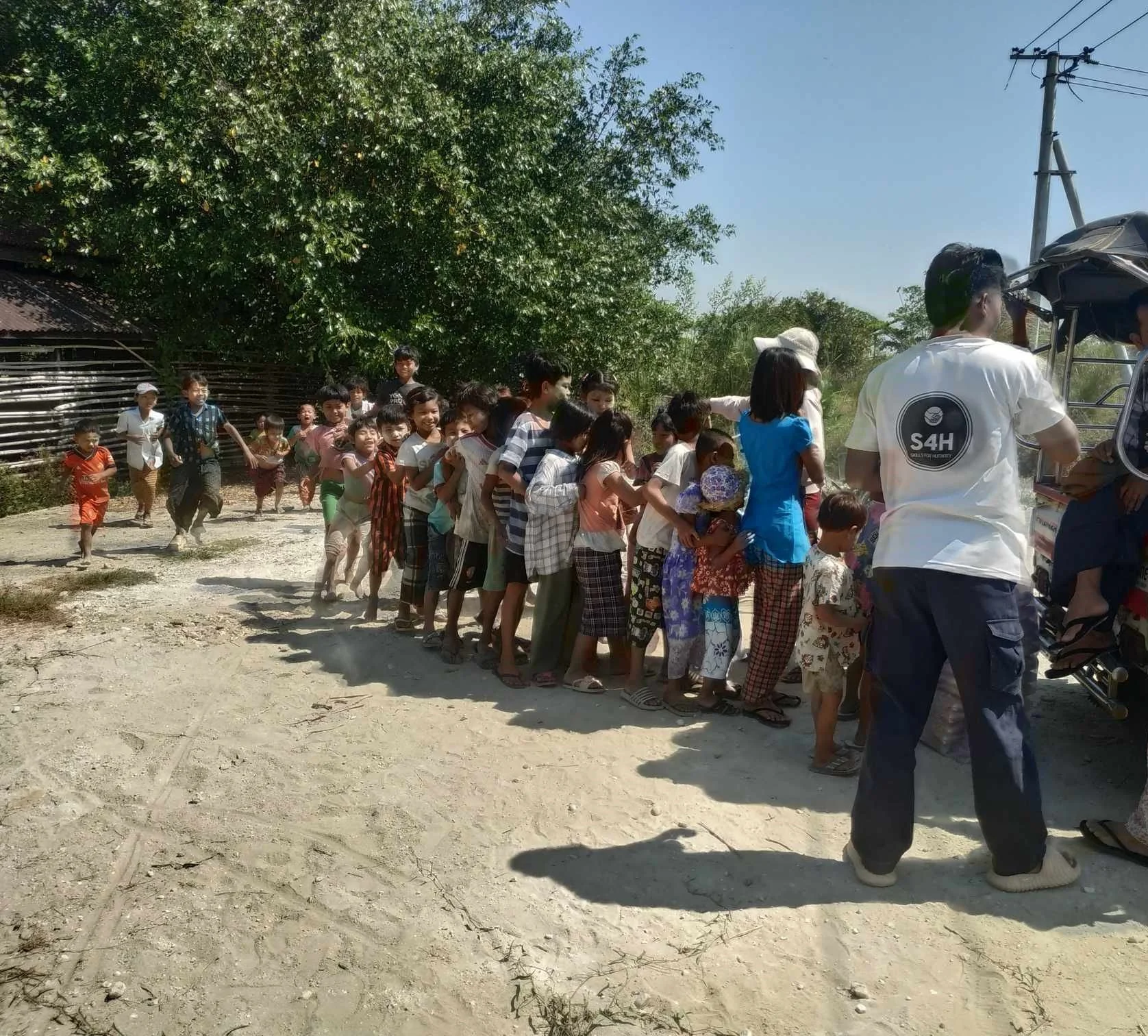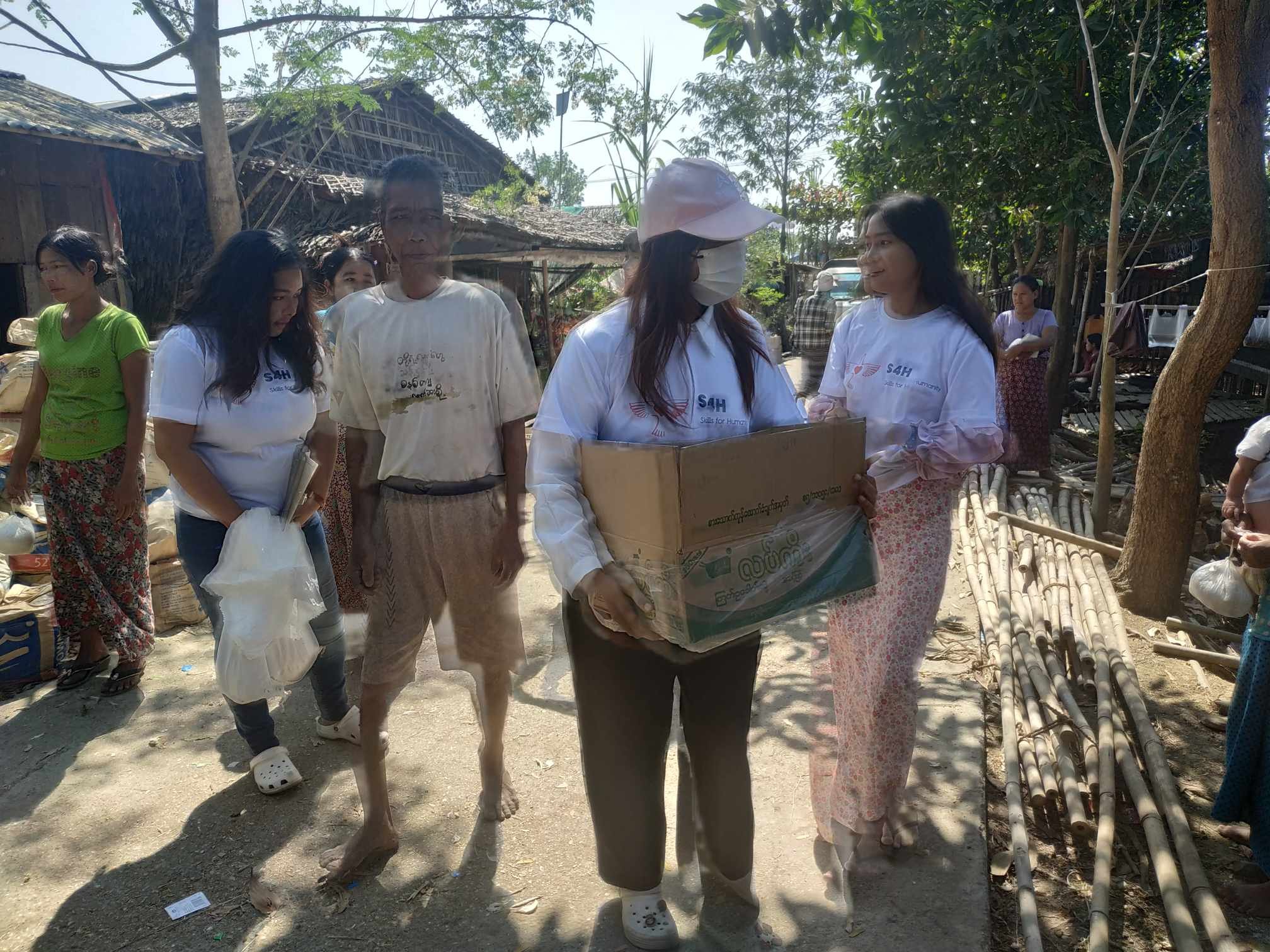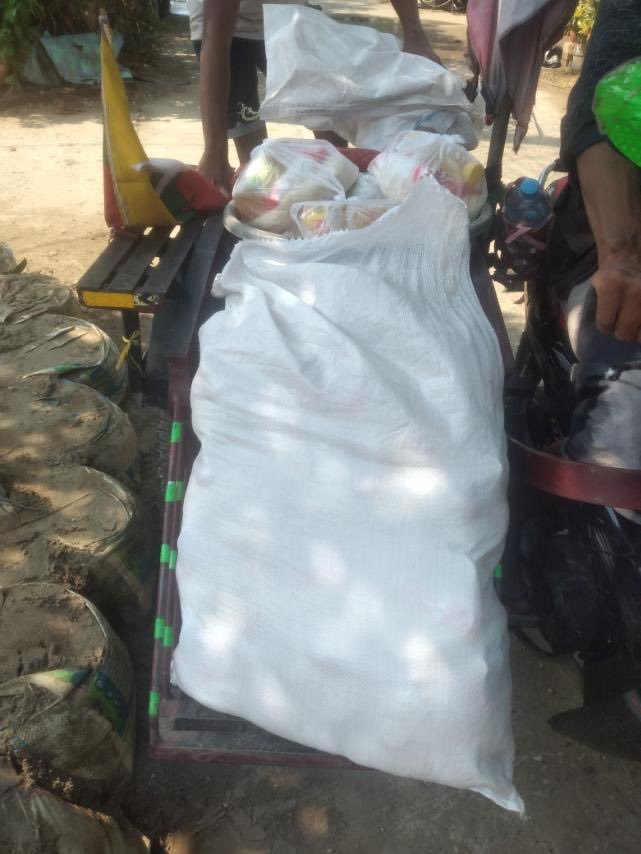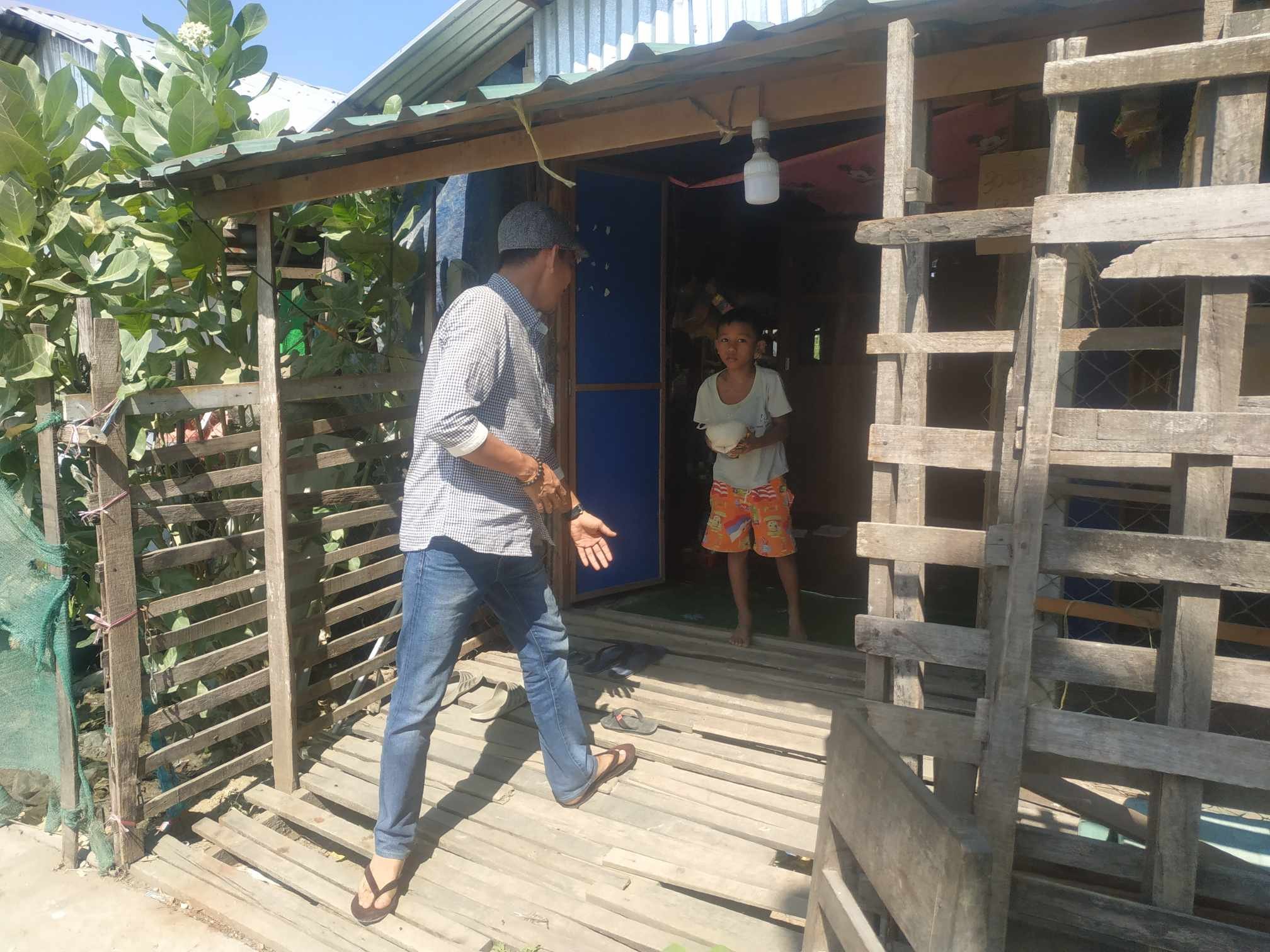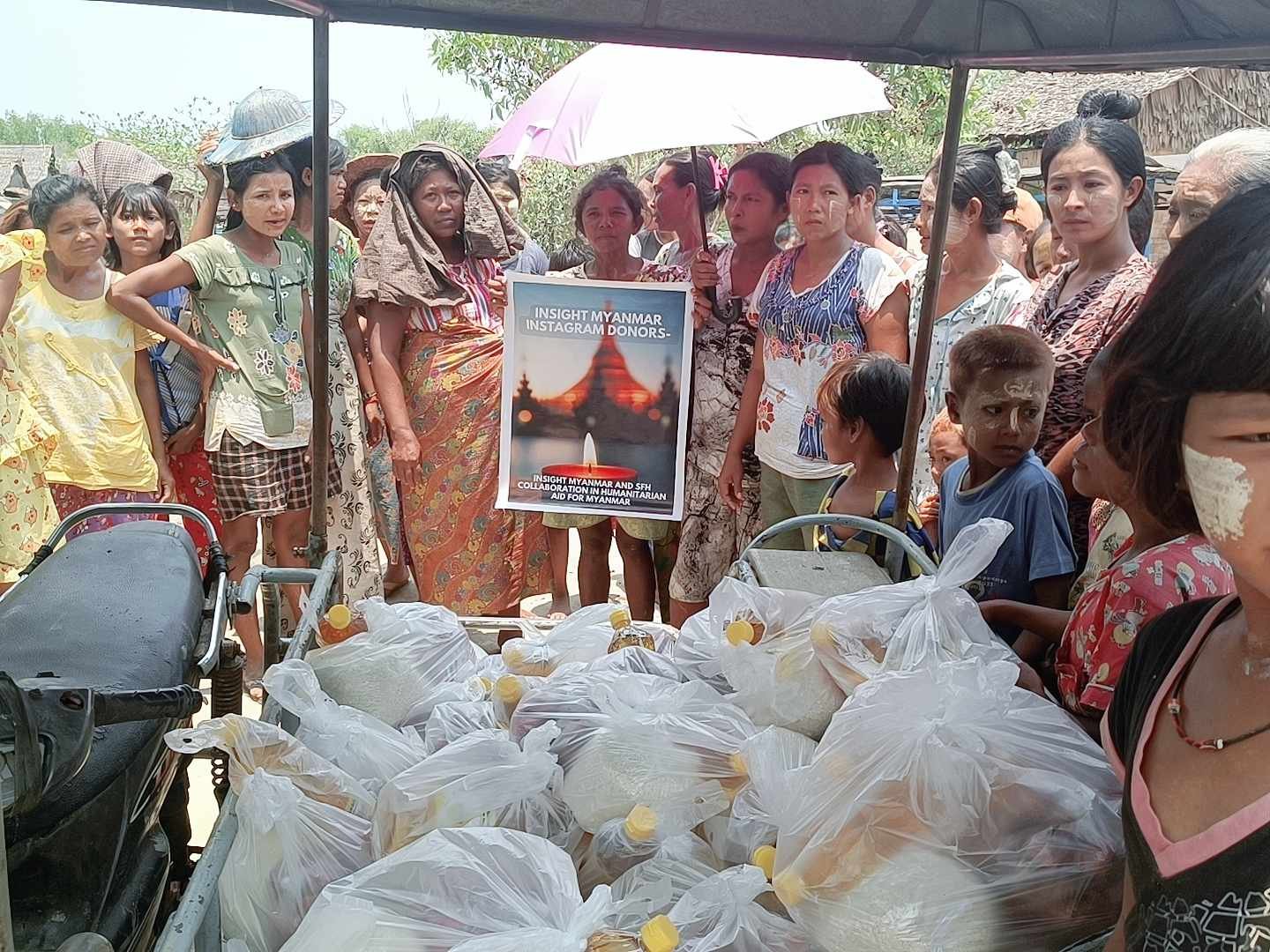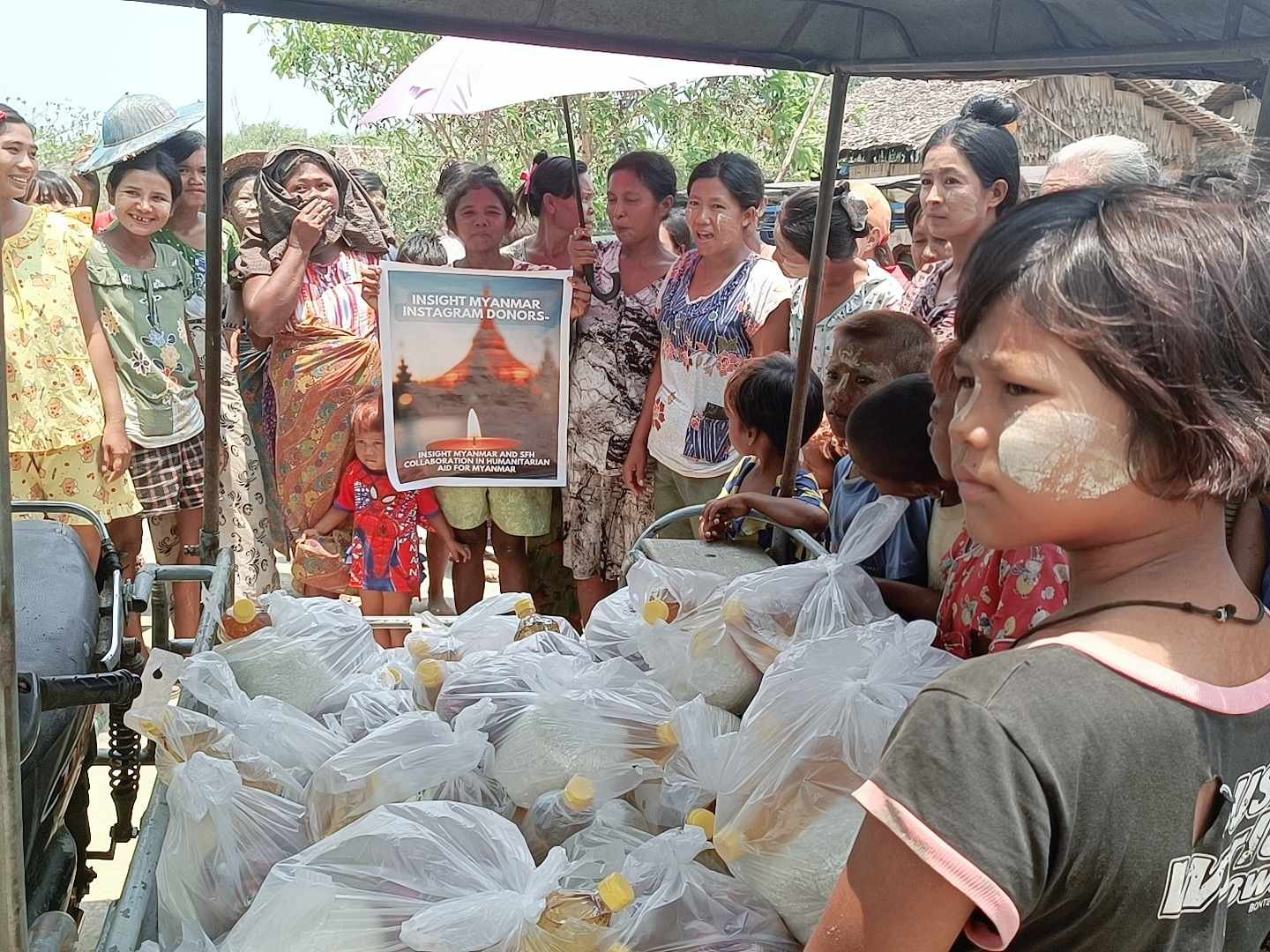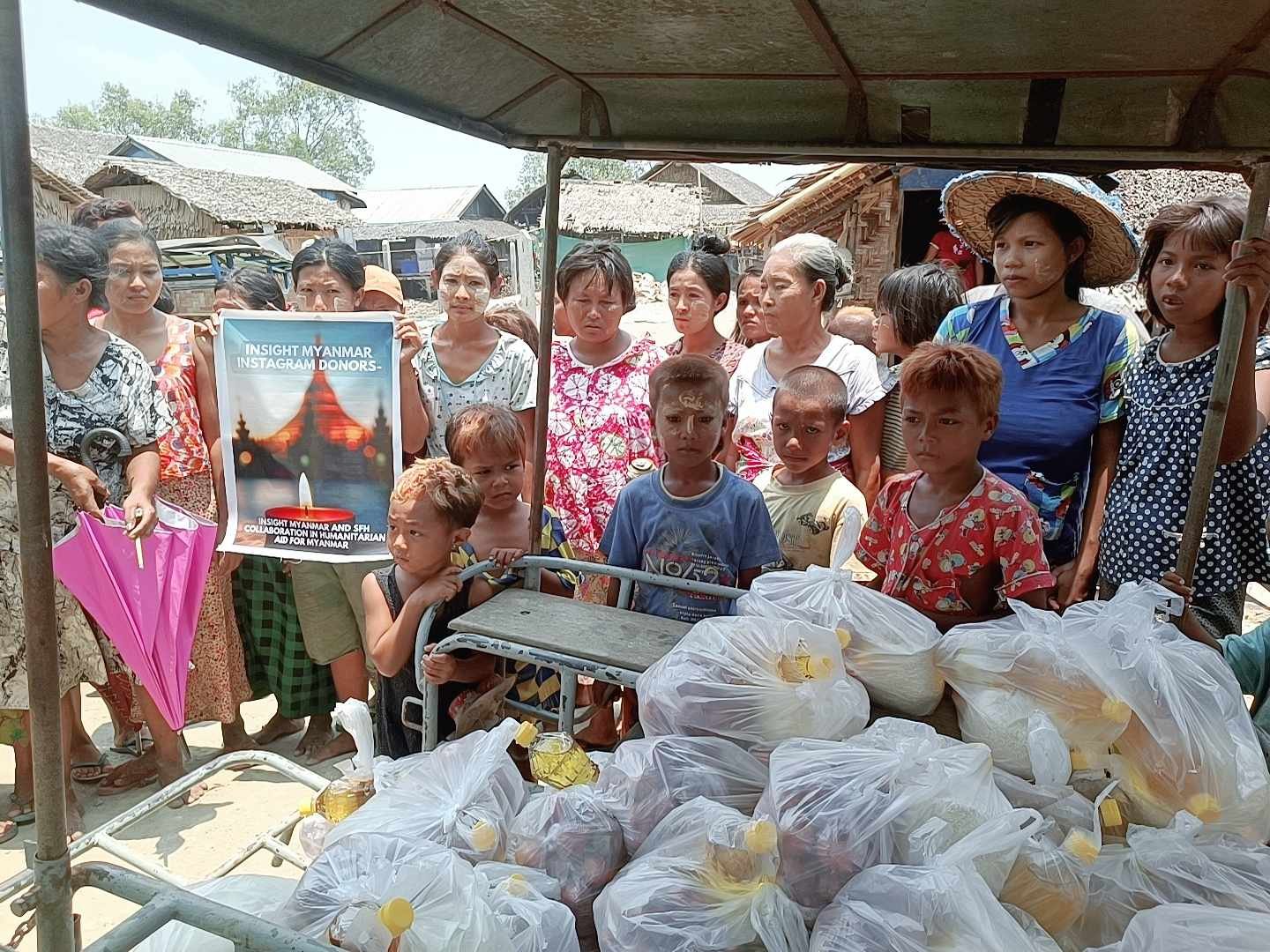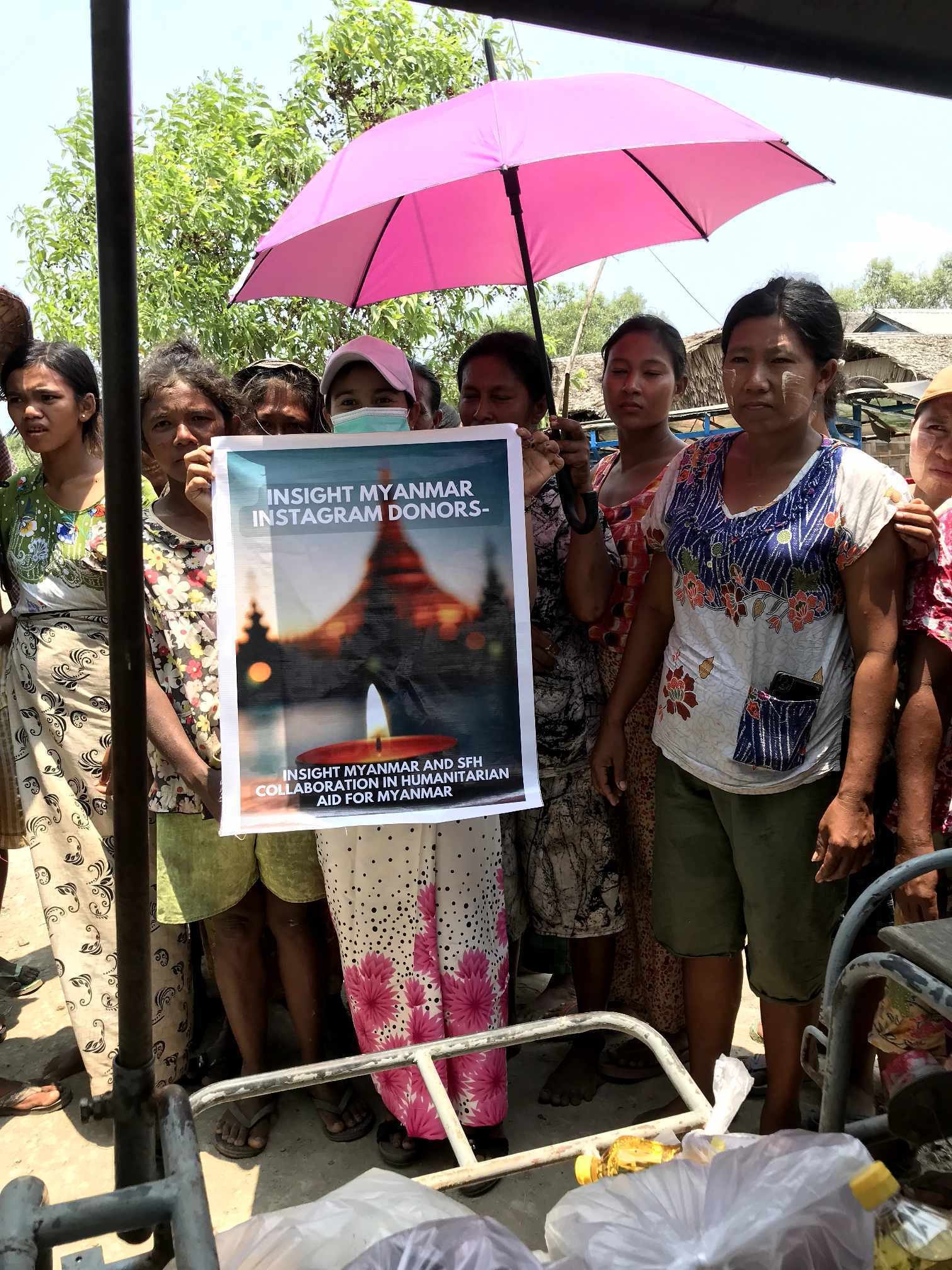Holding On to Hope in Tanintharyi’s Unseen Crisis
Tanintharyi, Myanmar's southern coastal state, has long been a region known for its beautiful landscapes and agricultural economy. However, the ongoing conflict has increasingly destabilized life here. While Tanintharyi has been considered a lower-risk area compared to other states, recent resistance movements have caused the military to escalate attacks. Arrests are common, and the local population faces a growing threat from military crackdowns. For many, the dangers of arbitrary detention and violence are ever-present, making everyday life uncertain and fraught with risk.
The military has maintained control over large areas, creating roadblocks and checkpoints that severely limit the movement of civilians and aid workers. This has left many communities isolated, with little access to food or medical care. Vulnerable groups—such as orphaned children, the elderly, disabled individuals, and pregnant women—are particularly at risk. Families who have been displaced by the conflict are now living in makeshift camps, struggling to survive in the face of severe shortages of basic supplies.
In response, local teams supported by Better Burma have stepped in to provide critical assistance. Though the security situation makes it difficult to deliver aid consistently, efforts have been made to distribute food and medical supplies to the most vulnerable populations, especially in areas like Dawei and Palaw. These communities, already suffering from malnutrition, have been receiving nutrient-dense food such as rice, lentils, and dried fish. These staple supplies are designed to last families for at least two weeks, providing them with much-needed relief from the threat of hunger.
Medical care is also a pressing concern in Tanintharyi. With hospitals and clinics out of reach for many, local medics are working tirelessly to provide care to those in need. Basic medical supplies such as antibiotics, pain relievers, and bandages have been distributed to IDP camps and vulnerable households. These supplies are often the difference between life and death, as many in Tanintharyi suffer from treatable conditions like infections or chronic illnesses but have no access to professional care. Pregnant women, in particular, face tremendous risk, as they often give birth without the necessary medical support.
The isolation of these communities has also led to an alarming rise in malnutrition, particularly among children. Without access to fresh fruits, vegetables, and milk, many children are growing weak, their growth stunted by a lack of proper nutrition. Infant mortality rates are climbing as malnourished mothers struggle to produce enough milk to feed their babies. In some cases, emergency formula has been distributed to help sustain infants who are unable to breastfeed, but the supply is far too limited to meet the growing demand.
In one camp, an aid worker described the conditions as "heartbreaking," noting that many families had gone days without a proper meal before aid finally arrived. The food supplies delivered by those local teams we’ve been supporting have provided a temporary lifeline, but the need remains overwhelming. Many of the people receiving aid express gratitude, but they also worry about what will happen once the supplies run out. With the military controlling key routes into the region, replenishing these supplies is a constant challenge.
Despite these obstacles, Better Burma has sought to provide direct assistance wherever possible, ensuring that essential supplies reach those most in need. This work would not be possible without the generosity of our supporters, and we are especially grateful to One Light Global for their invaluable contribution. As a donor through Better Burma, their support has made a direct impact on the lives of those struggling in Tanintharyi, giving hope amidst hardship. In a recent distribution effort, they were able to deliver life-saving supplies to over 322 households across several locations, with each household receiving enough food to last two weeks. Their commitment to humanitarian relief reinforces our collective efforts to stand with those facing this unseen crisis.
The people of Tanintharyi, especially those in IDP camps, face a harsh and uncertain future. As the conflict drags on, the need for sustained humanitarian assistance grows. If you’ve already donated, your contributions have made an immediate impact by providing essential food and medical supplies to those who need them most. But the situation in Tanintharyi is far from over. More families are being displaced every day, and the resources available to help them are dwindling.
We are asking for your help once again. Every donation, no matter how small, makes a difference. Your support can help deliver life-saving food, medicine, and shelter to the people of Tanintharyi. Thank you for standing with the people of Tanintharyi and for offering them a lifeline when they need it most.
Photo credit: SFH
